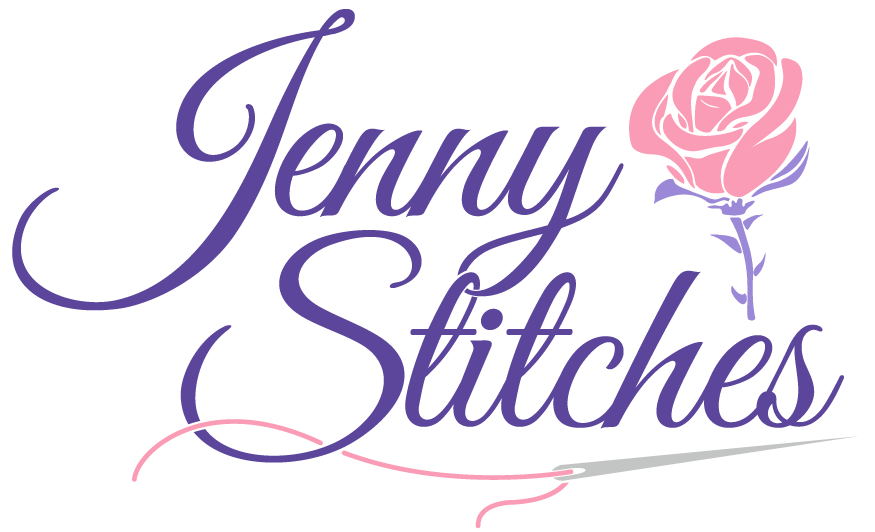
The workhorse of your wardrobe, denim is a durable and densely woven fabric best known for its use in those classic blue jeans.
Like all fabrics though, there's a few different types available and it can feel confusing when we are trying to choose the right denim for our project.
What are the different types of denim?
Raw Denim - Unwashed, rigid and usually a deep blue colour. Raw denim is often used for jeans and will soften with wear (though it can take a bit of breaking in!)
Washed Denim - Faded and softer, washed denim is more recognisable in our ready to wear options. Stone washed is washed with stones to create the distressed look, acid washed or bleached is much lighter in colour.
Stretch Denim - Usually a blend of cotton, polyester and elastane, stretch denim provides a a little wearing ease which makes it more comfortable for fitted styles. The stretch is not significant, it won't run away with you! It merely gives a little extra comfort.
Chambray - Made by weaving coloured threads through a white weft, lighter weights of denim are often referred to as chambray. Used for shirts and lightweight dresses, it is similar in weight and feel to a cotton poplin.
What do the different denim weights mean?
(one of our most asked questions!)
Denim Weight Categories
1. Lightweight Denim (4oz – 8oz)
- Soft, drapey, and easier to sew than heavier denims.
- Ideal for shirts, dresses, skirts, and lightweight jackets.
- Some lightweight denim includes chambray, which looks like denim but is woven differently (plain weave vs. twill).

4.5oz Denim is great for stylish, breathable garments.
2. Midweight Denim (9oz – 12oz)
- More durable than lightweight denim but still flexible and comfortable.
- Best for jeans, structured skirts, jackets, and overalls.
- Can be sewn on most home sewing machines with a denim needle and the right settings.

3. Heavyweight Denim (12oz – 16oz+)
- Thick, stiff, and extremely durable.
- Used for workwear, utility pants, structured jackets, and upholstery.
- Often raw or selvedge denim, which requires breaking in.
- May need an industrial or heavy-duty sewing machine to handle multiple layers.
How to Choose the Right Denim Weight for Your Project
✔ Soft, flowing garments? → Choose lightweight denim.
✔ Everyday wear, like jeans or jackets? → Go for midweight denim.
✔ Heavy-duty, long-lasting items? → Use heavyweight denim.
Can I sew denim on a regular sewing machine?
Absolutely yes! With the right needle, stitch length and thread you can sew a myriad of garments on your home sewing machine, from jeans to shirts and everything in between!
Very heavy weights of denim may be more difficult to handle and better suited to an industrial machine but all weights of denim sold at Jenny Stitches can be sewn on a domestic machine.
What is the best stitch for denim fabric?
-
Stitch Length: A longer stitch length, typically between 3 to 3.5 mm, is advisable for denim to accommodate its thickness and prevent puckering. If you're working with lighter weights, such as 4.5oz or chambray, a regular 2.5mm stitch will be fine.
-
Topstitching: Achieve that classic denim finish by using decorative topstitch. As practical as it is pretty, a strong topstitch adds extra strength and structure to your garment and it's so satisfying to stitch! Denim thread and topstitching needles are recommended to create a smooth and consistent stitch.
-
Seam Finishes: Denim tends to fray, so finishing seams with techniques like flat-felled or overlocked seams will encase raw edges and extend the garment's lifespan.
Do I need a special thread to sew denim?
- If you're sewing lightweight denim (12oz or less), a high-quality polyester thread like Gütermann Sew All, is strong enough for regular seams.
- Polyester thread has some flexibility, which helps prevent breakage when the fabric stretches or moves.
-
For heavier denim weights or topstitching, we recommend Gutermann Denim thread. When topstitching, it's advisable to only use the thicker denim thread in the top spool, filling your bobbin with a regular Sew All thread, this makes the stitches neater and smoother from the wrong side.
What is the difference between a denim needle and a regular needle?
Denim or jeans needles have a stronger shaft, a sharp strong point and a larger eye, meaning that they're better equipped to deal with the dense fabric.
For denims over 6oz, we recommend a 90/14 jeans needle - we stop Schmetz and Prym which are both excellent and reliable brands.









1 comment
Thank you Jenny for the blog on Denim , lots of information on Weights, their uses, threads and needles to use .I will be writing this down in my sewing note book , 👏👍